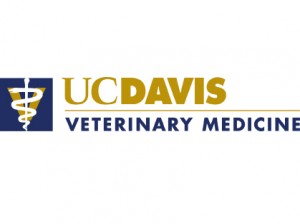UC Davis Veterinarian Having Success with Innovative Canine Prostate Cancer Treatment
UC Davis School of Veterinary Medicine Press Release
Prostate cancer is likely a topic every man over 45 has discussed with his doctor. Did you know that male dogs can get prostate cancer too? Fourteen percent of men will develop this type of cancer in their lives, but 99% will survive because of advances in available treatment options. These advancements are making their way into veterinary medicine as well, and one such example is the pioneering work of Dr. Bill Culp, VMD, DACVS, at the UC Davis Veterinary Medical Teaching Hospital.
Dr. Culp, a board-certified surgeon who specializes in interventional radiology, is conducting a clinical trial to evaluate a new procedure to treat prostate cancer in dogs. The treatment is similar to a procedure in human medicine that has taken hold in the past few years for treatment of non-cancerous prostate enlargement. Known as prostatic transarterial embolization, the treatment is emerging as a minimally invasive alternative to other prostate cancer therapies. Advanced imaging (CT and MRI scans) is performed, allowing an assessment of the prostate tumor and associated blood supply. Once the blood supply has been mapped, the tumor is accessed minimally invasively (interventional radiology techniques) utilizing fluoroscopic guidance (real time “x-rays”). Catheters are placed, and the blood supply to the tumor is identified. Material can then be injected into the blood vessels supplying the tumor, which causes a blockage of the vessels, thereby cutting off the blood supply and accompanying nutrients to the tumor. The size of the gland and tumor decrease as cells die from lack of blood supply. Dr. Culp’s procedure has been performed on six dogs to date, and the early results have been promising.
One recipient of Dr. Culp’s procedure is Kopper, a 14-year-old Belgian Malinois from Tennessee. Kopper, who worked to protect his community for the majority of his life, is a retired K-9 officer that was brought to the University of Tennessee’s (UT) veterinary hospital last year for treatment of a paralyzed larynx and megaesophagus. While at UT, his prostate issues were discovered. Veterinarians there were familiar with Dr. Culp’s clinical trial and referred Kopper’s owners, Matt and Heather Thompson of Maryville, Tennessee, to UC Davis. Matt, a corporal with the Blount County (TN) Sheriff’s Department K-9 unit, along with Heather, loaded up his former law enforcement partner and traveled the 2,500 miles to California to see Dr. Culp.
Once at UC Davis, Kopper was assessed by Dr. Culp and Dr. Carrie Palm, a veterinary nephrologist/urologist at UC Davis. CT and MRI images of Kopper’s tumor showed signs consistent with a cancerous prostatic carcinoma. The images also showed appropriate vasculature for the embolization procedure, meaning Kopper was a good candidate for the procedure. Dr. Culp, along with a colleague who performs similar procedures on humans, Dr. Craig Glaiberman, MD, successfully performed Kopper’s procedure.
Kopper returned home to Tennessee within a few days. Dr. Culp worked with Kopper’s local veterinarian for his recheck exam to ensure his recovery was uneventful. To date, Kopper’s prostate has decreased in size, and he has been doing well. The hope for Kopper and all dogs undergoing this minimally invasive treatment, is that a decrease in tumor size will improve the quality and length of life for dogs with prostate cancer.
Dr. Culp continues this clinical trial. Recruitment of more dogs with naturally occurring prostate cancer is needed to help evaluate the effectiveness of prostatic transarterial embolization as an accepted standard-of-care procedure. To learn more about the trial, please see www.vetmed.ucdavis.edu/clinicaltrials.
Short URL: http://caninechronicle.com/?p=81680
Comments are closed












